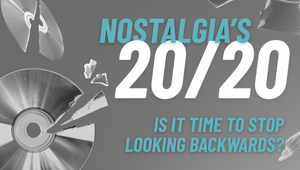
Be More Santa: A Lesson in Enduring Appeal and Effective OOH Advertising

Coca-Cola’s first-ever fully AI generated Christmas campaign hit the press last week, including a modern recreation of the iconic Truck Tour and ‘The World Needs More Santas,’ plus a new entry of a multi-dimensional Santa people can talk to, inviting consumers to connect more personally with the brand.
Surprisingly, the first thought that popped into my head wasn’t Coca-Cola’s catchy “home for the holidays’ jingle, but instead ‘You’ve come a long way, Baby;’ a 1963 marketing slogan made famous by Philip Morris for Virginia Slim Cigarettes. As random and inappropriate as this appears, if we look back at Santa Claus’s advertising career, there is a plausible connection.
Santa Claus has been a prominent figure in Out-of-Home advertising for decades. In the early 1900s, Santa was used in various print and OOH ads to promote products ranging from cigarettes (natch) to motor oil. It wasn’t until Coca-Cola’s 1931 billboard campaign featuring a jolly, red-suited Santa enjoying a coke (an iconic image created by artist Haddon Sundblom) that Santa as we know him today was solidified in popular culture.
Over the years, Santa has been adapted to fit different cultural contexts in advertising. In France, Santa has been shown delivering gifts in a more traditional Père Noël style, opting for a more stylish inbuilt hood in his cloak over the floppy red hat we know in the UK. Subtle differences but the red suit, white beard, and jolly demeanour of Santa remain instantly recognisable assets
More recently, OOH advertising has seen Santa Claus integrated with technology. Digital billboards and interactive displays have used augmented reality to allow people to take photos with a virtual Santa. This year Coca-Cola have taken technology to a new level. You can talk to AI Santa, creating your own takeaway snow globe to share with family and friends, plus take part in a ‘shadow’ technology experience on red billboards which activates unique Santa silhouettes as you pass. Santa in 2024 has come a long way, baby.
Brands today can learn several valuable lessons from Santa’s global recognition and enduring appeal which can impact the effectiveness of OOH campaigns, including my top six below:
1. Consistent branding - Brands that maintain a consistent visual and messaging strategy foster recognition and trust, and when executed using OOH best practise creative guidelines on OOH’s trusted, public channel, drives profit. A new report called The Magic of Compound Creativity , compiled by Andrew Tindall using System 1 data and the IPA database looked at what happens when you compare consistent brands with those that aren't. The report establishes a Creativity Consistency Score (CCS), which proves a powerful metric for an industry obsessed with change at the expense of effectiveness. The results showed the recurring use of characters, scenarios and straplines all pay off in the longer term increasing from a 2.4-star rating in Year 1 to a 3.5 star in Year 5. Importantly, consistency delivers business results, with the most consistent brands reporting 3.2 large business effects vs 2.5 for the least consistent.
2. Emotional Connection: There is no denying Santa evokes feelings of joy, generosity, and nostalgia that never wanes. Brands like Cadbury's current OOH campaign, that create those big, creative ideas, the ones we recognise, relate to, give us a wry smile, or make us give a nod of approval are the ones that build memory structures and emotional connections that are critical for long term success. They take us from a (difficult) rational decision such as ‘how much am I prepared to pay for this?’ to an (easier) emotional one such as ‘how much do I like this?’
3. Cultural Adaptability: Santa is known by different names and has various representations around the world, yet the essence remains the same. Brands should be adaptable to tap into cultural moments across markets. Ranging from using OOH’s media power x data-driven DOOH messaging to encourage more support of the Women’s UEFA Champions League to deliver Heineken's Out of Home Matches in Brazil. Through to a transcreation approach adopted by Tag to ensure messaging is culturally nuanced whilst maintaining core values and identity.
4. Distinctive Brand Assets: The importance of brands being distinctive - that is, whether your brand stands out to the customer, whether it looks like itself, whether it comes to mind, particularly in buying situations cannot be understated. Mark Ritson has previously suggested that salience is the big job that brands need to do, as high as 70% or 80% of it; brands need to get it right to get noticed. For best practise, Mark suggests a simple formula as a guide for brands to use their distinctive brand assets as Logo + 3 - the '3' could include colour, characters, font, sonic assets to name a few. Powerhouse brands (IKEA, Heinz, McDonalds etc) can afford to play with assets in a proven effective way.
5. Technological Integration: Santa has been a technological pacesetter for decades. From the original NORAD North Pole tracker which has subsequently been followed by multiple copycat apps, through to the applications of Augmented Reality and AI in OOH detailed above. Brands should be more like Santa, embracing the plethora of opportunities afforded by the expansion of DOOH x Creative Technology, to both entertain and aid communities like the awarded EE's Stay Connected OOH Campaign
6. Partnerships and Collaborations: Santa’s image has been successfully used in various partnerships, most notably with Coca-Cola. In an era of collaboration and co-creation, surprising partnerships can be a great way to stand out in OOH. A great example of this in action is the recent Gladiator II OOH campaign on Piccadilly circus, taking a variety of other brands back to 211AD.
By learning from Santa's enduring success, brands today can enhance their own marketing strategies and OOH campaigns, building a lasting, positive presence in the minds of consumers.
And in the future, who knows, we might see Santa on a Space billboard on Mars greeting us with “You’ve come a long way baby,’ and he wouldn’t be wrong.















